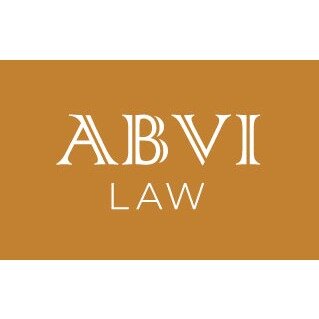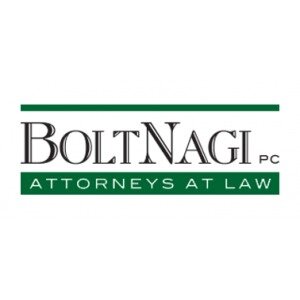Best Conveyancing Lawyers in Road Town
Share your needs with us, get contacted by law firms.
Free. Takes 2 min.
Free Guide to Hiring a Real Estate Lawyer
List of the best lawyers in Road Town, British Virgin Islands
About Conveyancing Law in Road Town, British Virgin Islands
Conveyancing in Road Town, British Virgin Islands refers to the legal process of transferring ownership of real property from one party to another. This area of law encompasses not only residential and commercial property transactions but also related matters such as leasing, mortgages, and title reviews. Due to the popularity of the British Virgin Islands as an international business and tourism hub, property transactions often involve both local and foreign parties. The conveyancing process is governed by both local statutes and common law traditions, ensuring transparency and protection for all parties involved.
Why You May Need a Lawyer
Engaging a qualified lawyer is vital when dealing with conveyancing matters in Road Town. The property transfer process can involve complex legal documentation, negotiations, and compliance with various regulatory requirements. Here are common situations where legal help is advisable:
- Purchasing or selling real estate, whether residential or commercial
- Drafting, reviewing, or negotiating sale and purchase agreements
- Conducting title searches and ensuring clear title is conveyed
- Securing mortgage financing or refinancing existing properties
- Dealing with joint ownership, trusts, or inheritance-related transfers
- Leasing property or drafting lease agreements
- Resolving property disputes, boundary issues, or encumbrances on title
- Handling property transfers involving non-resident buyers or sellers
Local Laws Overview
The conveyancing process in Road Town is shaped by a combination of statutes and established practices. The Registered Land Ordinance (Cap. 229) is the primary legislation governing property registration and transfer. Some key aspects include:
- All property transfers must be registered with the Land Registry to be legally effective
- Non-Belongers (foreigners) may need a Non-Belonger Land Holding Licence before purchasing property
- The process includes due diligence such as reviewing title, existing encumbrances, and outstanding charges
- Stamp duty is payable by the buyer, with rates differing for Belongers and Non-Belongers
- Property taxes must be current before a transfer can proceed
- Specific formalities must be followed for contract preparation, execution, and registration
- Mortgages and other security interests are also registered with the Land Registry
Frequently Asked Questions
What is conveyancing and why is it important in the BVI?
Conveyancing is the legal process of transferring property ownership. It ensures that the buyer receives legal title and that all legal, financial, and tax obligations are settled. Proper conveyancing protects both buyers and sellers from future disputes.
Can foreigners buy property in Road Town?
Yes, foreigners (Non-Belongers) can purchase property but must first obtain a Non-Belonger Land Holding Licence. This process involves submitting an application and can take several months for approval.
What documents are needed for a property sale?
Common documents include the title deed, sale and purchase agreement, identity documents, Non-Belonger Land Holding Licence (if applicable), and clearance certificates for property taxes and stamp duty.
How long does the conveyancing process take in Road Town?
The timeline varies, but for straightforward transactions, it typically takes 1 to 3 months. The process may take longer if a Non-Belonger Land Holding Licence is required or issues with title or encumbrances arise.
What taxes and fees are involved in property transfers?
Buyers must pay stamp duty, with rates differing for Belongers and Non-Belongers. Additional fees may include legal fees, registration fees, and property tax arrears if any exist.
What is a title search and why is it important?
A title search is a review of the public records and Land Registry to confirm the seller's legal right to sell the property and discover any liens or encumbrances. It is essential to ensure the buyer receives clear title.
Can I buy property with another person?
Yes, joint purchases are common. The ownership structure (such as joint tenancy or tenancy in common) should be specified clearly in the transfer documents and registered accordingly.
Is it necessary to register the transfer with the Land Registry?
Yes, registration at the Land Registry is mandatory for the transfer to be legally recognized. Failure to register may affect your legal rights as a property owner.
What if there is a dispute over property boundaries?
Boundary disputes should be resolved with the assistance of a lawyer and, where necessary, a licensed surveyor. Unresolved disputes may need to be settled in court.
How do I find a reputable conveyancing lawyer in Road Town?
Look for lawyers or law firms with experience in real estate transactions in the British Virgin Islands. Contacting the BVI Bar Association or seeking referrals from local estate agents are common ways to find qualified legal professionals.
Additional Resources
The following organizations and government bodies can assist with questions about conveyancing in Road Town:
- Land Registry, Government of the Virgin Islands - for land registration and title information
- BVI Bar Association - for a directory of qualified legal practitioners
- Ministry of Natural Resources, Labour and Immigration - for information on Non-Belonger Land Holding Licences
- Inland Revenue Department - for guidance on stamp duty and property taxes
- Real estate agents and licensed valuers in Road Town
Next Steps
If you are considering buying, selling, or leasing property in Road Town, starting with professional legal advice is recommended. Here is how you can proceed:
- Gather all relevant documents related to your property transaction
- Contact a reputable conveyancing lawyer in Road Town
- Discuss your specific situation and goals
- Your lawyer will guide you through due diligence, regulatory compliance, contract drafting, and registration
- Stay informed about your rights and obligations at each stage of the process
Getting legal advice early can help prevent costly mistakes and ensure a smooth, secure property transaction in the British Virgin Islands.
Lawzana helps you find the best lawyers and law firms in Road Town through a curated and pre-screened list of qualified legal professionals. Our platform offers rankings and detailed profiles of attorneys and law firms, allowing you to compare based on practice areas, including Conveyancing, experience, and client feedback.
Each profile includes a description of the firm's areas of practice, client reviews, team members and partners, year of establishment, spoken languages, office locations, contact information, social media presence, and any published articles or resources. Most firms on our platform speak English and are experienced in both local and international legal matters.
Get a quote from top-rated law firms in Road Town, British Virgin Islands — quickly, securely, and without unnecessary hassle.
Disclaimer:
The information provided on this page is for general informational purposes only and does not constitute legal advice. While we strive to ensure the accuracy and relevance of the content, legal information may change over time, and interpretations of the law can vary. You should always consult with a qualified legal professional for advice specific to your situation.
We disclaim all liability for actions taken or not taken based on the content of this page. If you believe any information is incorrect or outdated, please contact us, and we will review and update it where appropriate.














